Add Your Heading Text Here
Putting Accessibility for People with Disabilities First
Chicago has always been considered the city that works, but it hasn’t always been the city that works for everyone. My administration is committed to making Chicago more equitable and accessible for all, including Chicagoans with disabilities.
Inclusion and accessibility has been central to several pillars of my mayoral platform – my Safer 77 plan calls for complete disability training for CPD officers, my Mental Health plan expands access to resources that are critical to the disabled community, and my Transportation plan calls for accessibility improvements across CTA stations.
The provisions outlined here serve to further my commitment to Chicagoans with disabilities and are in addition to the provisions already outlined in my other plans.
Economic & Employment Inclusion
- Make the pilot cash assistance program permanent and implement it across the City.
- Work with our federal delegation to exempt people with disabilities from being penalized for receiving cash assistance.
- Create a financial system that includes a public bank with programs for Chicagoans with disabilities who have traditionally been unbanked and haven’t had access to loans.
- Establish benchmarks for accessibility and require banks that do business with the city to meet them.
- Task the MOPD with investigating Chicago businesses throughout the employment process including: job postings, applications, interviews, selection, hiring, and employee accommodations. Work with City Council and the Department of Business Affairs and Consumer Protection to determine how to fine and ultimately deny business licenses for businesses that continuously engage in unfair, inaccessible practices.
Accessible Education
- Make every Chicago Public School fully accessible within 5 years – currently, less than 40% of CPS schools are fully accessible for students, staff, and parents with disabilities.
- Task CPS administration with creating a plan to address disabled student inequity – students with disabilities, particularly Black disabled students, are also more likely to enter the school-to-prison pipeline. The graduation rate of students with disabilities is 13% less than the general population. Our administrators need to put dedicated effort into resolving these inequities for our young people.
- Overhaul CPS’ bus program so that routes are shorter and all students, including students with disabilities, are able to take a bus to school. Ensure that CPS is fully compliant with the Individuals with Disabilities Education Act and establishes and adheres to maximum travel times. Once these improvements are in place, end the practice of offering parents vouchers to find their kids alternate ways to get to school.
- Ensure schools have sufficient resources to manage day-to-day health needs, including mental health support (such as expanded access to 311 for non-crisis needs), trauma-informed counseling, and pandemic protective equipment.
- Commit to a full external evaluation of CPS special education practices, including unfit transportation accessibility issues, and publish an action plan to remediate practices.
Accessible Transit
- Make our CTA rail system 100% accessible, beyond just ADA compliant.
- Improve the city’s paratransit service – make it accessible and digital so that people can utilize it from their phones.
- Work with the taxi and rideshare industry to create more reliable, on-demand and accessible transportation.
- Accelerate accessibility improvements, including accessibility, ramps, and elevators, at train stations and bus stations throughout the City.
- Expand reliable, accessible transit options on CTA for CPS and CCC students to go from their homes to their schools. Existing discounted fares do not go far enough.
Housing
- Work with the City Council to pass a city ordinance that requires that all new affordable housing units in the city are built to be accessible. Further direct CHA to gather data on how many units of affordable, accessible housing are currently in demand so that we can make a plan to meet the need.
- Address long-standing inaccessibility issues in existing affordable housing units and hold owners accountable for not complying with city-issued accessibility standards.
- Incorporate accessibility information on the Affordable Rental Housing Program website and make it a city priority to source and list more affordable units in the database.
- Make every single homeless shelter in Chicago accessible.
Quality of Life
- Double the amount of weekly home service time offered by MOPD from 6 hours to 12 hours. Work with the State and Federal government to get the funding needed to execute this.
- Commit to instituting the municipal Plow the Sidewalks initiative.
Administrative
- Collect demographic data on disabled people in Chicago across every single city department and sister agency. Include a section on disability status and ask the six demographic questions defined by the U.S. Department of Health and Human Services.
- Make all city services, websites, and documents fully accessible.
